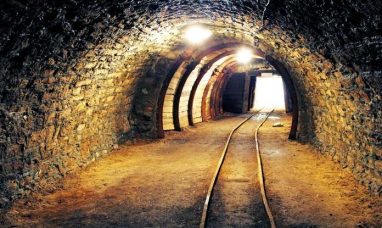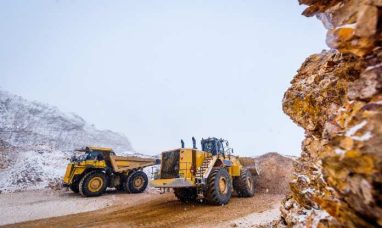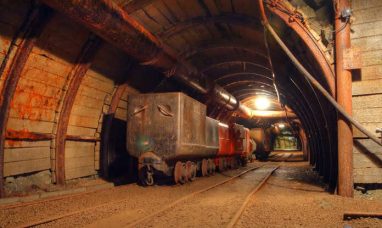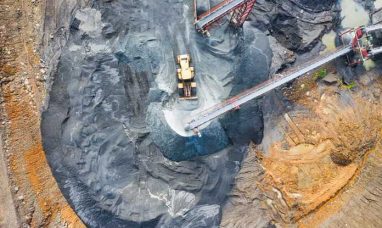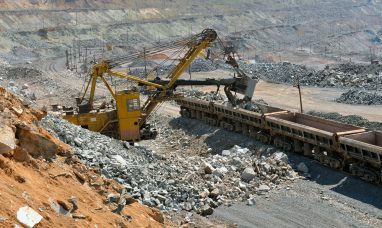BEIJING, Mar, 3, 2023 /PRNewswire/ — A news report from chinadaily.com.cn:
It is urgent to build a consensus on the notion that the real economy is the foundation of China’s national economy and an important pillar ensuring the country’s prosperity, and efforts are needed to boost the high-quality growth of the manufacturing industry, which is the principal part of the real economy, said Miao Wei, a member of the Chinese People’s Political Consultative Conference (CPPCC) National Committee and vice-chairman of the Committee on Economic Affairs of the National Committee of the CPPCC.
China has maintained its status as the world’s largest manufacturer for 12 consecutive years, with the value added of its manufacturing sector accounting for 27.4 percent of the country’s GDP in 2021 and about one-third of the global manufacturing industry.
However, along with the solid development of the domestic manufacturing sector, there have been voices questioning the manufacturing industry, linking them with such problems as environmental pollution, overcapacity and backwardness, some even call for more emphasis on developing emerging industries and high-tech manufacturing industries while ignoring the technological transformation and upgrading of the traditional manufacturing sector.
Voicing his concern, Miao proposed at the second plenary meeting of the fourth session of the 13th CPPCC National Committee on March 7, 2021 to further unify the social understanding of the high-quality development of the manufacturing industry and speed up the improvement of the systems and mechanisms conducive to the high-quality development of the sector, in a bid to further promote the development of the real economy.
In the past few years, Miao has made promoting the real economy and accelerating the construction of a powerful manufacturing nation his top priority in performing his duties as a member of the CPPCC National Committee.
He said that even though China’s manufacturing industry has made great achievements in recent years, it still faces the challenge of being big but not strong, and many fundamental capabilities are still weak, key core technologies are controlled by other economies and the business environment needs to be further optimized.
As the former head of a leading automaker in China and later as the minister of industry and information technology, Miao has spared no efforts in supporting the transformation and development of the automobile industry, a key pillar sector of the national economy, over the years.
Many of Miao’s insightful views, such as those on the development of intelligent connected vehicles and on-board intelligent computing platforms, the importance of long-term strategic cooperation between automakers and integrated circuit enterprises, and the significance of developing automobile operating systems, have won wide praise from relevant authorities and automakers. A selection of these views has been incorporated into national industrial development plans or industrial administration policies.
Miao said that, in the long run, China needs to further encourage the cultivation of high-quality skilled workers, promote the spirit of craftsmanship, and give professional technicians the social status and treatment they deserve, to build itself into a manufacturing power.
He suggested the establishment of a mechanism that tilts the ownership of scientific research achievements to talents who have made major contributions, in addition to the development of a more relaxed and inclusive environment for scientific research, as well as an improved system for intellectual property rights protection.
Miao’s footprints were also found in investigations and research on some major issues involving high-quality development, including development of digital government, the systematic layout of new infrastructure projects, the promotion of the sustainable and healthy development of the digital economy, the scientific and technological ethics and legal issues in developing artificial intelligence, the equal access to basic public services and improvement of social security and optimization of the business environment during the 14th Five-Year Plan (2021-25) period.
Miao is also concerned about Sino-US relations. He said he believes that the two countries can fully carry out cooperation based on common interests.
For example, when dealing with the issue of climate change, the two countries can give play to their respective expertise and advantages to achieve common development. While contributing to the green and low-carbon development of the two countries and the world, cooperation between the two sides will also effectively promote the cultivation of emerging industries and sustainable economic growth.
“It is my honor to be able to contribute to the Party’s undertakings and to solve problems for the people through my own efforts,” said Miao, who recently won national recognition for his outstanding performance as a CPPCC member in 2022.
![]() View original content to download multimedia:https://www.prnewswire.com/news-releases/political-adviser-advocating-high-quality-growth-of-manufacturing-301761951.html
View original content to download multimedia:https://www.prnewswire.com/news-releases/political-adviser-advocating-high-quality-growth-of-manufacturing-301761951.html
SOURCE chinadaily.com.cn

Featured image: DepositPhotos © lurii










![A team headed by Miao Wei conducts a special survey on maintaining the stability of industrial and supply chains in East China's Shanghai municipality and Zhejiang province in June 2021. [Photo provided to cppcc.gov.cn] A team headed by Miao Wei conducts a special survey on maintaining the stability of industrial and supply chains in East China's Shanghai municipality and Zhejiang province in June 2021. [Photo provided to cppcc.gov.cn]](https://mma.prnewswire.com/media/2015330/979027a7_9dd2_4804_adde_db5b6f5791ca_jpg.jpg)
